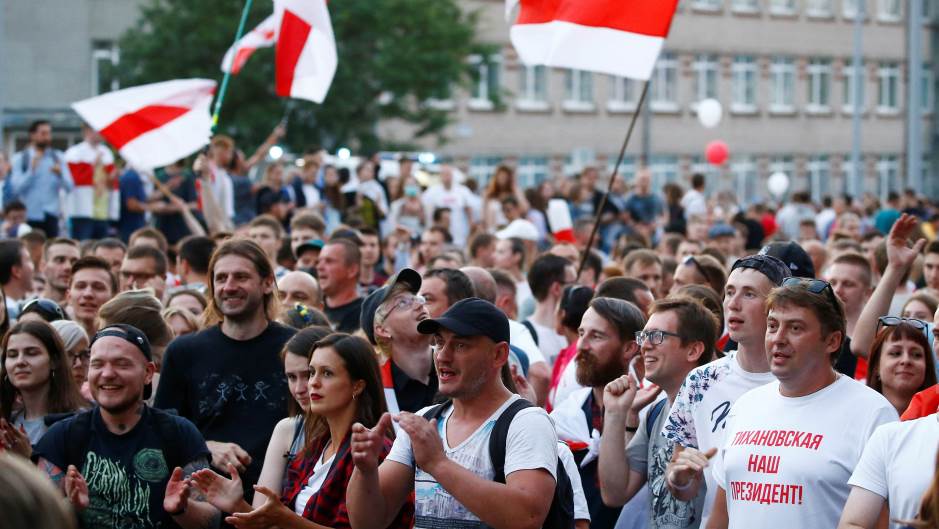
The Western Balkans states have different views about the situation in Belarus and the daily demonstrations against the presidential election’s results, with Serbia avoiding any comment, while Bosnian Serb leader Milorad Dodik has congratulated Alexander Lukashenko on another term in office.
Radio Free Europe (RFE) said that despite its traditional friendship with Minsk, Belgrade kept silent. Skopje, RFE added, was the only European Union candidate country to directly support the sanctions against Belarus announced by the bloc after the country’s police violent attempt to suppress the protests.
https://twitter.com/Dimitrov_Nikola/status/1294391142696529927
Podgorica said it followed the events with concern, while Pristina did not answer the RFE question before the article was published.
Serbia’s Foreign Ministry also failed to respond to RFE query about Belgrade’s official stance toward the events in Belarus.
RFE said that though Serbia’s President Aleksandar Vucic often congratulated to the most of the countries following elections, had so far not saluted Lukashenko for his widely contested victory both at home and abroad.
Serbia and Belarus, RFE recalled, had traditionally good relations, adding Lukashenko’s last visit to Belgrade was in December last year when many bilateral contracts were signed.
Then, the relationships between Minsk and Belgrade had been described as excellent, sincere and friendly. Serbia thanked Belarus for not recognising Kosovo as an independent state.
Bosnia and Herzegovina also did not officially react to the situation in Belarus. Still, Dodik, a Serb member of the tripartite Presidency from Republika Srpska, the Serb entity in the country, sent Lukashenko a congratulatory message.
Kakvo je tvoje mišljenje o ovome?
Učestvuj u diskusiji ili pročitaj komentare





 Srbija
Srbija
 Hrvatska
Hrvatska
 Slovenija
Slovenija







